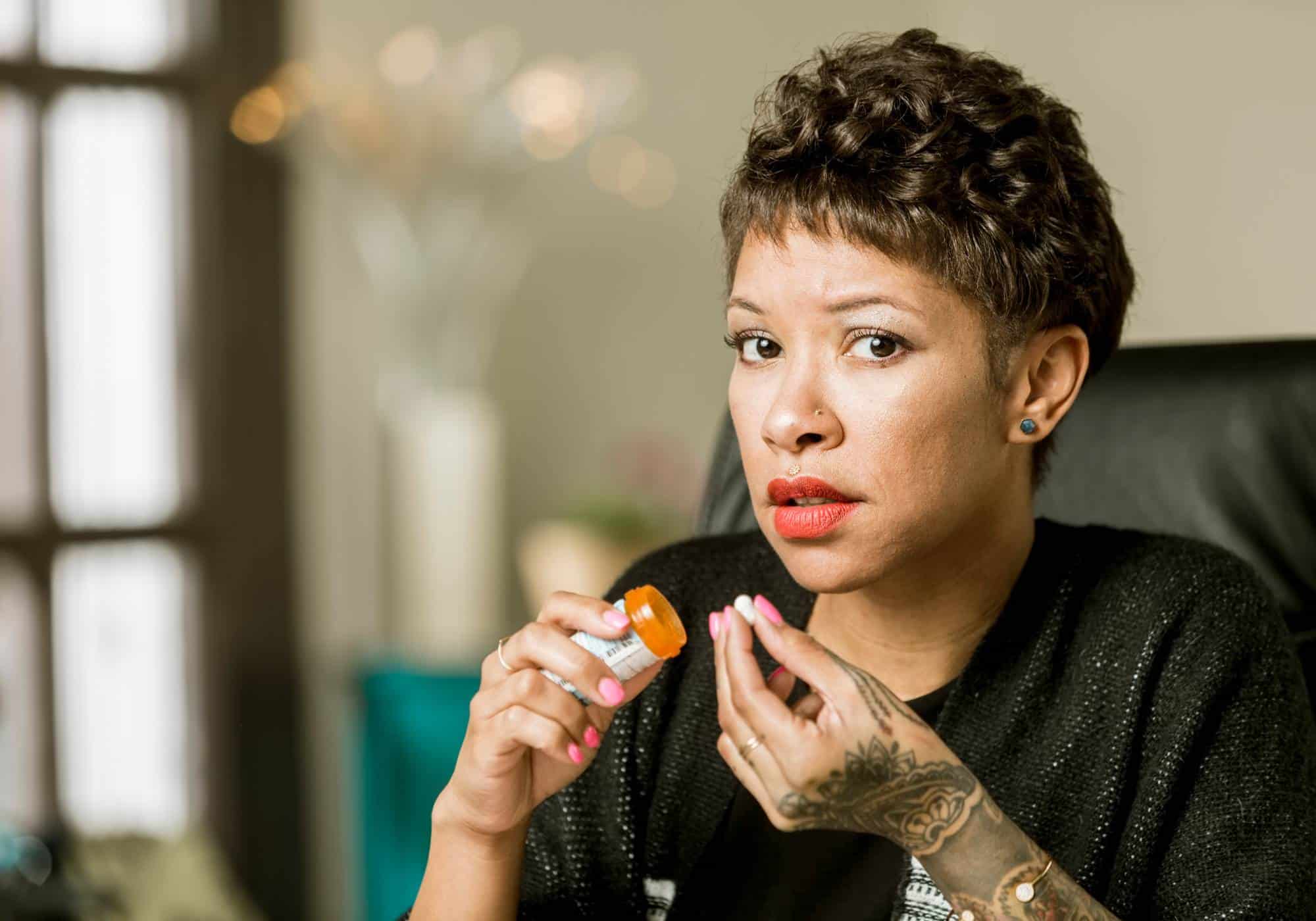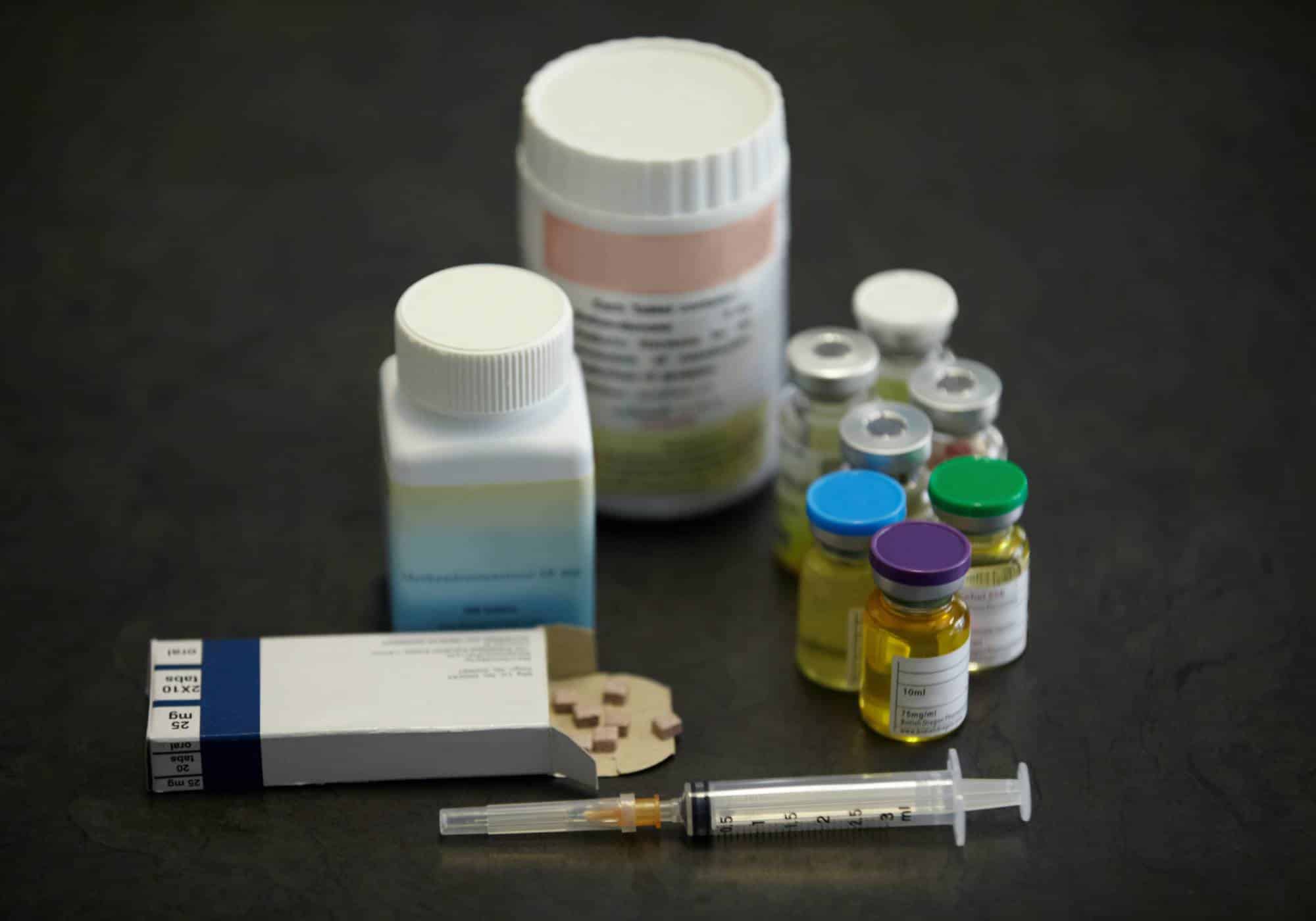Morphine addiction plays a significant role in the ongoing opioid crisis in the United States. As a natural opiate derived from opium, morphine is frequently prescribed for severe pain management after injuries or surgeries but carries a high potential for addiction. If you or someone you care about might be at risk for morphine addiction, it’s crucial to recognize the symptoms early. Contact Hope Harbor Wellness at 678-928-5869 to learn more about the signs of morphine addiction and explore treatment options available for opiate addiction in Atlanta, GA.
What is Morphine?
Morphine is an opiate pain reliever derived from the opium poppy plant, utilized for centuries to alleviate pain and suffering. This natural medication is predominantly prescribed for severe pain management in patients with cancer or other life-limiting illnesses and is sometimes used to assist individuals in managing addiction.
Morphine is available under various brand and generic names, including:
- MS-Contin®
- Oramorph SR®
- MSIR®
- Roxanol®
- Kadian®
- RMS®
Historically administered primarily through injection, morphine now comes in several forms to accommodate different methods of administration, enhancing its accessibility and ease of use.
Available morphine formulations include:
- Oral solutions
- Immediate and extended-release tablets and capsules
- Injectable preparations
These diverse formulations allow for tailored treatment approaches to meet specific patient needs and pain management requirements.
How Does Morphine Work?
Morphine functions by suppressing the central nervous system, effectively blocking pain signals from reaching the brain while simultaneously enhancing dopamine production, which contributes to both its euphoric and pain-relieving effects. Despite its benefits, morphine comes with notable drawbacks, particularly with long-term use.
Common Side Effects of Morphine Include:
- Anxiety and agitation
- Confusion or “brain fog”
- Constipation and other digestive issues
- Sleep disruptions
- Drowsiness and fatigue
- Dry mouth and eyes
- Depression and lack of motivation
- Dizziness and altered pain perception, which could lead to injuries
- Hallucinations, memory issues, and mood swings
- Nausea, vomiting, and decreased appetite
- Impaired judgment and motor skills
- Respiratory depression and seizures
- Speech difficulties
Risks Associated with Long-Term Use:
- Tolerance: Increasing doses are needed to achieve the same level of pain relief.
- Dependence: Withdrawal symptoms can occur if the medication is abruptly stopped or the dosage is reduced.
- Addiction: This severe brain disorder arises from repeated drug use, manifesting in compulsive behaviors and altered brain function.
Research indicates that the efficacy of morphine in chronic pain management may decrease after three months of continuous use, highlighting the necessity of closely monitored treatment plans to optimize pain management safely and effectively.
Is Morphine Addictive?
Yes, it is possible to develop an addiction to morphine, especially with long-term use. Morphine is a Schedule II controlled substance, highlighting its high potential for addiction due to both its physical and psychological effects.
Physical Dependence
This occurs with extended morphine use, particularly for chronic pain management. The body adapts to the presence of the drug, requiring it to function normally and avoid withdrawal symptoms. Physical dependence is characterized by the body’s increasing tolerance to the drug’s effects and the emergence of withdrawal symptoms if morphine use is abruptly reduced or stopped.
Psychological Dependence
his form of dependence involves intense cravings and the compulsive use of morphine, which might not necessarily develop in patients using the drug under strict medical supervision for pain relief.
Managing the risk of addiction involves careful monitoring and, when necessary, gradually reducing the dosage under medical supervision to mitigate withdrawal risks. Opioid use disorder, or morphine addiction, typically arises from long-term misuse, where the user loses control over their intake. This underscores the importance of distinguishing between dependence as a facet of medical use and addiction that stems from misuse.

Morphine Addiction Risk Factors
The likelihood of developing an addiction to morphine or other substances is influenced by various risk factors. While no single factor guarantees addiction, it typically arises from a combination of multiple influences. The presence of protective factors, such as engaging in healthy activities or having supportive family interactions during childhood, can reduce this risk.
Key risk factors for morphine addiction include:
- Childhood trauma.
- High levels of family conflict.
- A family history of substance use or mental health disorders.
- Existing mental health issues.
- Aggressive behavior in childhood.
- Insufficient parental supervision during childhood.
- Limited ability to refuse peers.
- Early drug experimentation.
- Easy access to drugs.
Understanding these factors can help in identifying vulnerabilities and guiding effective prevention and treatment strategies for morphine addiction.
Signs and Symptoms of Morphine Addiction
Recognizing the signs of morphine addiction is crucial for seeking timely help. Here are some common indicators that someone might be struggling with addiction to morphine:
- Persistently using morphine in larger amounts or for longer than intended.
- Devoting considerable time to obtaining, using, or recovering from morphine.
- Strong cravings or a compulsive need to use morphine.
- Continuing morphine use despite it causing significant personal, professional, or financial issues.
- Neglecting social, occupational, or recreational activities due to morphine use.
- Using morphine in hazardous situations.
- Experiencing withdrawal symptoms when morphine use is reduced or stopped.
The consequences of morphine addiction are severe and can disrupt not just the life of the individual but also affect those close to them. This underscores the importance of accessing treatment for morphine addiction promptly.
Drug Rehab programs for morphine addiction offer essential support and guidance to help individuals recover. These programs typically include counseling and various therapies designed to teach coping mechanisms for stress and triggers. Many also provide medication-assisted treatment with drugs like methadone or buprenorphine to help manage cravings and minimize the risk of relapse.
Effects of Morphine Abuse
Morphine, a potent painkiller, is known for inducing:
- Deep pain relief
- A trance-like state of deep contentment
- Calm and relaxation
- Intense feelings of euphoria
- Drowsiness and sleepiness
- Reduced anxiety
The abuse of morphine often stems from its ability to produce euphoria, leading to various problematic behaviors:
- Taking more than the prescribed dose as tolerance builds, reducing both its pain-relieving and euphoric effects.
- Using morphine recreationally.
- Using the drug without a legitimate prescription.
- Doctor shopping to obtain multiple prescriptions.
- Using a prescription that was not prescribed to the user.
High doses of morphine significantly increase the risk of opioid overdose. According to CDC data from 2020, opioids were implicated in over 75,000 of the 100,000 drug overdose deaths in the U.S., marking a sharp rise from 55,000 opioid-related deaths in 2019.
Hope Harbor Wellness provides outpatient treatment for morphine addiction in Atlanta, GA. Contact us today at 678-928-5869 to begin your journey toward a drug-free life.
Morphine Withdrawal Symptoms
Morphine withdrawal occurs when an individual dependent on the drug abruptly decreases or stops their usage. Those experiencing morphine withdrawal might seek alternative opioids or illicit substances like heroin to manage their pain or withdrawal symptoms.
Symptoms of morphine withdrawal include:
- Anxiety
- Insomnia
- Irritability
- Elevated blood pressure, respiratory rate, or heart rate
- Muscle aches
- Abdominal cramps
- Nausea and vomiting
- Diarrhea
- Fever
- Chills
- Sweating
- Teary eyes
- Runny nose
While morphine withdrawal symptoms are generally not life-threatening, they are often highly uncomfortable. To ensure safety and comfort, medical management of withdrawal, often with medication assistance, alongside detoxification, is typically recommended.
Signs of a Morphine Overdose
Recognizing the signs of a morphine overdose is crucial for timely intervention and can be life-saving. Symptoms of a morphine overdose include:
- Slowed breathing rate
- Deep sedation
- Raised body temperature
- Lack of concentration
- Slurred or impaired speech
- Elevated blood pressure
- Unresponsiveness
- Pain in the back or sides
- Muscle spasms and cramps
- Swelling in the face, hands, or feet
An overdose on morphine can result in unconsciousness and, in severe cases, may progress to a life-threatening coma. Prompt medical attention is essential in such situations.
Mixing Morphine with Other Substances
Mixing morphine, a potent central nervous system depressant, with other depressants such as alcohol or benzodiazepines heightens the risk of severe side effects. Concurrent use can cause profound sedation, significantly reduced breathing, or even coma, which are serious and potentially life-threatening conditions.

Morphine Addiction Treatment
Morphine addiction treatment programs, while varied in their specifics, all aim to help individuals overcome their dependence on the drug and return to a healthier, drug-free life.
Treatment options for morphine addiction typically include:
- Detox: This medically supervised phase includes constant monitoring by healthcare professionals to ensure the safe removal of the drug from the body.
- Medication-assisted treatment (MAT): Medications may be used during detox to alleviate severe withdrawal symptoms, making the process more manageable.
- Behavioral therapies: Essential to any addiction treatment, these therapies may include group sessions, one-on-one counseling, and family therapy, facilitating emotional healing and behavioral change.
- Experiential therapies: Incorporating holistic approaches like yoga, nutrition counseling, and creative arts, these therapies enhance overall well-being and provide constructive ways to handle recovery stress.
Each treatment program is tailored to meet the unique needs of the individual, ensuring an effective and supportive path to recovery.
Is Morphine Addiction Treatment Covered by Insurance?
Many insurance plans provide coverage for at least part of opiate detox and rehabilitation, but specifics vary. It’s essential to consult your insurance provider to understand what your plan covers, including any limitations on the duration of treatment or required copays. Some plans might also have eligibility criteria that need to be met. Always review your insurance terms and conditions thoroughly to ensure you know what is included.
Morphine addiction can cause significant disruptions in your life, with substance use disorders increasingly prevalent. But there is hope. Taking the step towards recovery requires courage and a solid support network. Hope Harbor Wellness is committed to providing that support. If you or someone you know is battling substance abuse, reach out to us today at 678-928-5869 or fill out our online contact form.
Morphine Addiction Treatment in Atlanta, GA
Chronic use of morphine can lead to dependence, which often intensifies without appropriate medical intervention. Dependence is a common issue among those prescribed long-term medication, but addiction introduces more complex challenges. In Atlanta, our substance abuse treatment center offers a comprehensive approach to tackle all phases of addiction.
We focus on treating both illicit and prescription drug dependencies with a variety of therapeutic interventions aimed at addressing the underlying causes of addiction and equipping clients with the skills needed for lasting recovery. Our team of dedicated professionals customizes each treatment plan to suit the individual’s unique requirements, providing a supportive and effective recovery journey. Reach out to Hope Harbor Wellness today at 678-928-5869 or via our online contact form to start your path to recovery from morphine addiction in Atlanta, GA.












